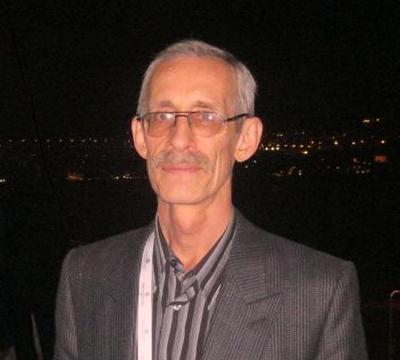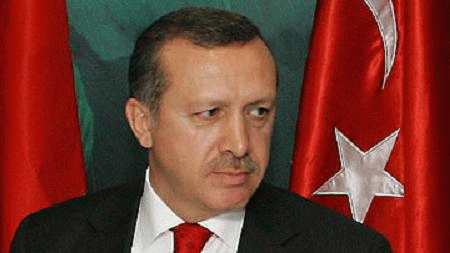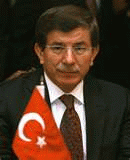As Turkey gears up to parliamentary elections in June, recent pronouncements by Turkish Prime Minister Recep Tayyip Erdogan and Turkish Foreign Minister Ahmet Davutoglu confirmed the importance that the Turkish leadership places in defining a more dynamic role for Turkey in the Middle East as a bridge between East and West.
The Leaders of Change summit 13-14 March in Istanbul brought together a hundred political leaders, academics and journalists primarily from the US, Europe and the Middle East. The summit was opened by the Turkish prime minister,
who referred to Turkey as a "democratic social state based on social justice", and described Istanbul as the right place for East-West meetings, with its long history of ties to the Middle East, the Balkans, North Africa , and as a crossroads of Christianity, Islam and Judaism. His address complemented the words of his foreign minister addressed to the summit: "Islam and democracy are side by side" now, and Turkish entry into the European Union will show that "Europe can have a Muslim country."Erdogan chastised the West for its reluctance to support the recent indigenous uprisings in the Middle East, and at the same time warned against the mistake of invading Libya as it invaded Iraq , saying that this would destroy any hope for democracy. A strong leader himself, he argued that if a leader falls behind, becomes merely a "ruler trying to resist change" and uses his position to enrich himself, he will be reviled and will fall. The state "lives" only in as much as the people live; there is no chicken-and-egg problem here. If there is to be regime change in Libya, it must come from the people, not the West.
The Turkish prime minister's vision is to dismantle borders, so that people can pass from Europe to the Middle East and vice versa, pointing to Turkey's abolition of visa requirements to dozens of countries, including Egypt and Russia -- unlike the insular EU. This is a long term vision of Erdogan, who co-sponsored the United Nations Alliance of Civilizations along with Spanish President Josà � Zapatero in 2005.
The "end of history" proposed by Francis Fukuyama after the collapse of the Soviet Union and the "clash of civilisations" proposed by Samuel Huntington were dismissed by the prime minister as Euro-centric and discredited by recent events in the Middle East. He also dismissed the Euro-centrism of the war on terror. "Terrorism is international" including "Madrid, Moscow and Istanbul" You can't say "My terrorist is bad, yours is good," a principle that "certain countries" operate on. The flow of ideas cannot be one-way. "We must share ideas to overcome problems."
The prime minister is already looking towards Turkey's centenary celebrations in 2023, and vowed at the Leaders of Change summit that Turkey would be among the top 10 economies by then. Deputy Prime Minister Hayati Yazici further spoke about the strong Turkish economy at the summit, claiming that Turkey's strong economy has raised living standards to the point that "no Turkish citizen is among the world's 1.5 billion people who must survive on less than a dollar a day or the 1 billion who lack adequate drinking water."
Foreign Minister Davutoglu
arrived at the summit straight from the sixth Al-Jazeera Forum "The Arab world in transition: Has the future arrived? " in Doha, Qatar 12-14 March, where he spoke at length about the Turkish vision for the Middle East. Davutoglu noted there that "The wave of revolutions in the Arab world was spontaneous. But it also had to happen to restore the natural flow of history".He condemned the colonial divide-and-conquer policies of
the 1930s-50s, carving up the Middle East and cutting the organic relations of
Arab countries, and the subsequent Cold
War , which distorted and weakened the region and turned nations
like Turkey and Syria , which had lived together for centuries,
into enemies. We are not witnesses of the end of history, but, on the contrary,
the return of the Middle East to "the normal course of history" after a century
of distortion, when ancient civilisations were torn apart by the invaders.
The foreign minister holds a PhD degree in Political Science and International Relations and was chairman of the Department of International Relations at Beykent University in Istanbul before entering the political arena. He is the author of five books, including Alternative Paradigms: The Impact of Islamic and Western Weltanschauungs on Political Theory and The Civilizational Transformation and The Muslim World , which have been published in English.
The end of the Cold War, the "earthquake of 1989", should have brought the Turkish and Arab peoples back to their "natural" relations, but the West prevented this, he told the Leaders of Change summit. The West believed that "Arab societies didn't deserve democracy, and needed authoritarian regimes to preserve the status quo and prevent Islamist radicalism."
Davutoglu rejects this scenario and points to the uprisings in the Arab world as proof that, "An ordinary Turk, an ordinary Arab, an ordinary Tunisian can change history," stating that the peoples who lived under the pre-colonial Ottoman rule "have a common destiny". "We need to reconstruct and restore the political systems in our region, just as we would rebuild our houses after a tsunami." The implication is that the tsunamis that destroyed the region are colonialism and Israel , and that the latter must become part of the region's common destiny.
His vision is based on recognition of "respect and dignity" for the people of the region, an end to the insults and humiliation. "That is what the young people in Tahrir Square demanded. After listening to them, I became much more optimistic for the future. That generation is the future of Egypt. They know what they want. This is a new momentum in our region, and it should be respected."
Change is happening whether the leaders want it or not, and requires that leaders lead the change or they will become followers. "Nobody should argue that only a particular regime or person can guarantee a country's stability. The only guarantee of stability is the people. We must become subjects of change, like the people in Tahrir Square."
No dictators can guarantee security -- "security and freedom are not alternatives; we need both." The only way forward is through "transparency, accountability, human rights and the rule of law." Davutoglu, clearly reflecting on Turkey's experience, warned that there must be a "clear separation between the military and civilian roles of the political institutions" and commended Egyptian head of state Field Marshall Tantawi's decision to transfer power to a civilian government as soon as possible.
He stressed that "the territorial integrity of our countries and the region must be protected. The legal status and territorial integrity of states including Libya and Yemen should be protected. During colonialism and cold war we had enough divisions, enough separations."
(Note: You can view every article as one long page if you sign up as an Advocate Member, or higher).







